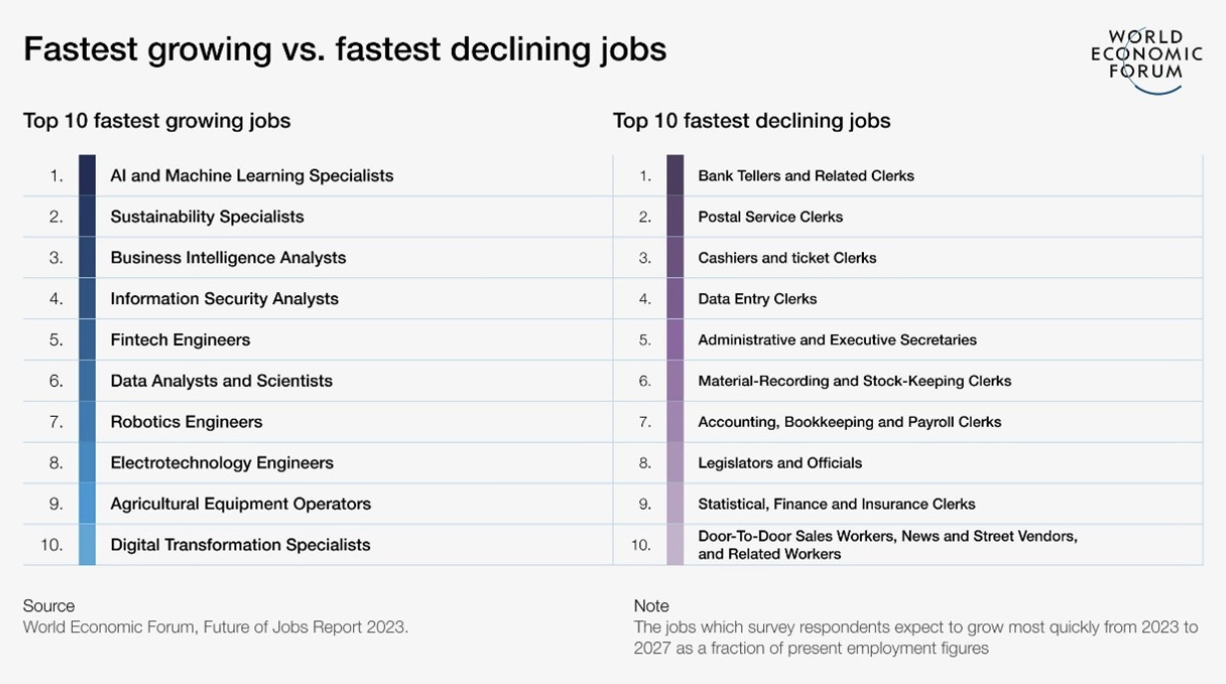your journey
IT Trainers: Solving the Digital Skills Gap
Building a Career as an IT Trainer
My journey
It hurts me to begin an article this way, but the start of my career as an IT trainer goes way, way back. When I started work, there was no PC or laptop on a desk, we had a typewriter. There was no email, there was a fax machine. There was no PowerPoint, but there was an overhead projector. There was no customer management system, there was a rolodex of business cards. There was no project planning software, there was a to-do list.
But we were on the cusp of a new digital age. Excitedly, I set about convincing my boss at the time to purchase PC’s and this new fancy software called Microsoft Office 95. & it became my job to train the people in the organisation how to use it.
Ever since then, I kept finding myself in the right place at the right time and have been thankful for the career path I found myself on.
Along came ERP systems to replace the black & green blinking mainframe systems and those projects took me around the world training new users. eCommerce was also the ‘in-thing’ that all businesses needed to be doing, everyone needed an online presence, bricks and mortar were no longer enough and these websites needed testing and staff needed to be educated how to maintain them. Next along came the cloud and with it new strategies for storage, virtualisation and collaboration. Cloud enabled SaaS systems to dominate with new HR, CRM, Product Management, Project Management and many more web-based niche systems that needed rolling out to the business users. Followed by big data, business intelligence tools and data visualisation. Next I found myself training people on digital marketing tools and social selling, and now, quite on trend, I work helping companies to implement automation software robots, and learn AI and machine learning software.
Why be an IT Trainer?
That pace of change with emerging technology isn’t changing, organisations are always going to need training professionals to enable a seamless integration of new software and ways of working into their business practice. Technology providers need to provide education and support to their customers, to make sure they adopt the solutions and remain happy customers.
Software and IT Training is a specialist and vital niche to develop yourself into, balancing a knowledge of learning design with an aptitude for IT systems.
Being in the tech industry provides opportunities for remote working, and has a tendency for higher than average salaries. In more traditional industries being a tech trainer and advocate gives you the chance to develop a profession, advance your career prospects and receive rewards for helping your organisation achieve their business and digital transformation goals.
Employment of computer and information technology occupations is projected to grow 13 percent from 2020 to 2030[1] and Gartner forecasts worldwide IT spending to grow 5.5% in 2023 to $4.6 trillion annually[2]. This reassures us that our career choice is in a secure and growing sector.
So, how to get into it?
Become a Super User
One way to gain valuable training and system experience is by volunteering as a super user in the software projects going on in your own organisation. Super users are a crucial resource in implementing, testing and training software systems. You’ll become an expert in the system and be able to pass on best practice advice to your colleagues, boosting your reputation in the business. It is also likely you will receive upskilling and development in the skills of training others. This hands-on involvement will not only enhance your technical expertise but also provide insight into the end-user experience, a perspective that is invaluable for a trainer.
If you know of such projects, reach out to the IT or Project Manager responsible and ask how you can get involved. If the super user role doesn’t exist yet, but there is a lot of digital change planned, then this is your chance to advocate for dedicated resources and time allocated to training. Emphasise how a well-trained workforce leads to improved employee satisfaction, retention, technology adoption and overall business success.
Once you have this experience, keep an eye out for internal promotions or on the jobs market to advance your career.
For more insights on gaining experience as a Super User, check out the book Super User Networks for Software Projects: Best practices for training and change management: Amazon.co.uk. This book is designed to help project, learning and change professionals who are responsible for this delivery by introducing the Super User Model and how to use it. It provides the tools, techniques, and theory needed to plan out where and how Super Users can add value at each phase of a project
Pick a lane
There are so many areas we can specialise in, it’s important to think about what you would enjoy the most.
- Does visual design appeal to you? Study instructional design.
- Does delivering live training feel like something you relish, consider a TAP certificate, or even transition from a traditional teaching role.
- Interested in human behaviour, the desire to learn and how to keep people engaged, perhaps study a CIPD diploma on the practice of learning & development or undertake a degree in organisational psychology.
- Maybe you are more passionate about the technical skills though – if you love to code and have the experience, prove yourself an expert who can simply and methodically explain it others.
- Staying more technical , there are Microsoft, AWS, Azure or Cisco certified trainer certificates you can pursue.
- You can specialise in a particular system such as SAP, Salesforce or Oracle for example, and if that is the route, there will be education programs the big tech companies provide for you to enrol on.
- Obtain certifications in key digital skills such as automation, analytics, software development, agile or project management. Often the training is free and you need to only pay for the exams.
Digital Skills Gap
Pay attention to analysts or the press describing digital skills shortages, where the number of qualified people is not meeting the demand of the industry or economy. Not only does that mean there is a shortage of people to do the jobs, it means we need more trainers to develop these workers of the future. These are the skills to focus on developing.
Several digital skills are currently in high demand across various industries. For instance, proficiency in cloud computing, particularly with platforms like AWS, Azure, and Google Cloud, is critical as organisations migrate their infrastructure.
With the rapid adoption of Automation, AI, and Machine Learning technologies transforming the workplace, there is a growing digital skills gap. As many as 60% of workers will require additional training by 2027.[3] This presents a significant opportunity for IT trainers to make a substantial impact in equipping the workforce with the necessary skills for the future.
Cybersecurity is another crucial area where expertise is greatly sought after. With the rise of cyber threats and data breaches, businesses are prioritising security measures, creating a pressing need for IT trainers who can educate professionals on best practices and defensive strategies.
Data analytics, visualisation and business intelligence tools are also in demand by many organisations. If you have experience in any of these fields already, switching to being a trainer of these skills is a good move to capitalise on the demand, as well as solidifying your expertise.

Mentoring & Coaching
Large organisations often have internal mentoring or coaching schemes you can apply to join. These are great to help advise you how to grow in your career, increase your profile, work on your personal brand or how to make the career change you want. You can also consider a professional careers coach, but there would be an expense to this.
Networking and Professional Development
Follow leaders in the industry on LinkedIn as there are some great posts with insights and advice for the profession. Sign up to newsletters and blogs from companies in the tech or learning space. Many of them host events and webinars related to new tech features, training methodologies, instructional design, or adult learning principles.
If you can invest in your development, consider professional membership of bodies such as British Computer Society (BCS), Chartered Institute of People Development (CIPD), Technology & Services Industry Association (TSIA) or the Customer Education Management Association (CEdMA). The networking opportunities alone will be super helpful, as well as the access to materials, events and research to stay informed of the latest thinking in the training world.
Develop Strong Communication and Teaching Skills
Being an effective communicator is crucial for a successful career as a trainer. You must be able to convey complex technical concepts in a clear and understandable manner. It is often termed that IT trainers are ‘translators’, we translate the technical and the complex into plain English to suit a new learner.
Additionally, cultivating empathy, conversation facilitation and patience will help you connect with learners and address their unique needs. Research learner engagement techniques and think about what you enjoyed from the training courses you have been on.
Joining Toastmasters is a great way of practising speaking and presenting to others, but seek out as many opportunities as you can for public speaking to build your confidence.
Stay Updated with Industry Trends
The tech industry is constantly evolving, with new software and technologies emerging regularly. To remain a relevant and effective trainer, it's essential to stay updated with the latest industry trends. Attend conferences, workshops, webinars or online courses such as those from Udemy or Coursera. Look for and actively participate in online forums and communities to stay in the loop.
Encourage a mindset of continuous learning, both for yourself and those you train. Stay curious, explore emerging technologies, and adapt your teaching methods to align with industry advancements. This commitment to lifelong learning not only keeps you relevant but also sets a positive example for your learners.
Conclusion
Embarking on a career as a software or IT trainer is a fulfilling journey that combines a passion for technology with a love of learning. It gives you the unique opportunity to shape the digital landscape of organisations and empower individuals with essential skills to succeed in their own career. By acquiring the necessary technical knowledge, gaining practical experience, and honing your communication skills, you can excel in this rewarding field.
Remember, volunteering as a super user in software projects is an excellent starting point providing you with a unique opportunity to gain invaluable training and system experience, setting you on the path to becoming an outstanding trainer in the IT industry.
Share this:

Jayne is a specialist in software implementation projects with a passion for helping organisations thrive in the digital age. With decades of experience leading business transformation, she has empowered numerous organisations to integrate new technologies into their digital transformation strategies.